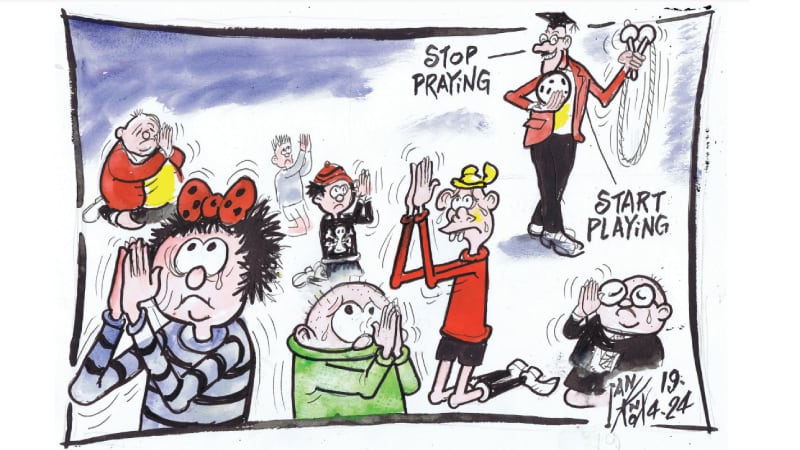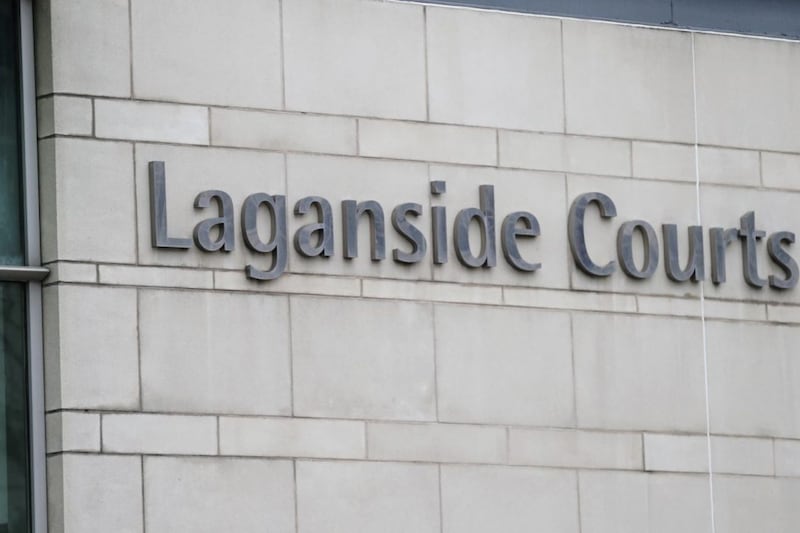IT WAS probably the most talked about trial on the island of Ireland throughout the slow and graphic nine weeks it ran in Belfast Crown Court 12.
The court was chosen because it is the biggest of the court rooms in Laganside with the largest public gallery.
Such was the interest there was rarely an empty seat from day one until closing arguments.
In such cases the public gallery is usually only inhabited by family and friends of either accused or alleged victim.
In this case I was shocked at how many people appeared to be there for purely voyeuristic purposes.
As a crime reporter I have always been an advocate of justice not only being done but seen to be done.
However, having watched the fairly distasteful behaviour of members of the public treating a rape trial like some kind of reality show, I'm now persuaded that we should follow the southern Irish model which excludes the public in cases of rape, incest and serious sexual abuse.
The press still report and are present in court in rape cases in the Republic fulfilling the need for justice to be seen to be done.
Using the graphic and sexually explicit details of a rape case as entertainment should not be permitted in any civilised society
I was told two women were getting a taxi to the court every day with a packed lunch and that people were getting the train from Dublin some days to watch what was, regardless of outcome or verdict, a traumatic event for the young woman involved and far from what I'd class entertaining to watch.
The social media frenzy around the trial was equally disturbing and distasteful so much so that Judge Patricia Smyth commented on it several times during the long weeks of evidence, warning the jury to ignore the comments from amateur legal experts who had appointed themselves as judge, jury and moral executioner.
As the verdict sinks in with life changing repercussions for all those involved, how such cases are trialled in future most be subject to considerable review by either a future devolved or direct rule minister.
The anonymity of the complainant, protected under law regardless of trial outcome, has been rendered immaterial given that complete strangers could wonder into court 12 and listen as her name was repeated again and again for all to hear.
To assume that those people with a moral compass so skewed they giggled as graphic details of what was alleged to be non-consensual sexual activity were read out in court, can be trusted with such sensitive information makes a mockery of the anonymity process.
Our justice system needs reformed to deal with advances in social media and how cases such as this are run in future should be made a priority.
Read More
[ Paddy Jackson and Stuart Olding found not guilty of rapeOpens in new window ]
Alleged victim's name was posted on comments section of an online news site
[ Relatives clasped each others' hands and openly wept as verdicts deliveredOpens in new window ]
Victims' support group calls for review into how trials are conducted
One of the most expensive rape trials in UK judicial history
'I Believe Her' rallies planned across Ireland
About the rugby rape trial judge Patricia Smyth
PSNI says woman at centre of trial 'upset and disappointed' at verdict
Paddy Jackson's lawyers say status as famous sportsman 'drove the decision to prosecute'
[ Stuart Olding faces major battle to return to pinnacle of his sportOpens in new window ]
[ Paddy Jackson had unwavering support from his parentsOpens in new window ]
[ Not guilty Blane McIlroy admitted being prone to exaggerationOpens in new window ]
[ Video: Paddy Jackson thanks judge and jury for fair trialOpens in new window ]








